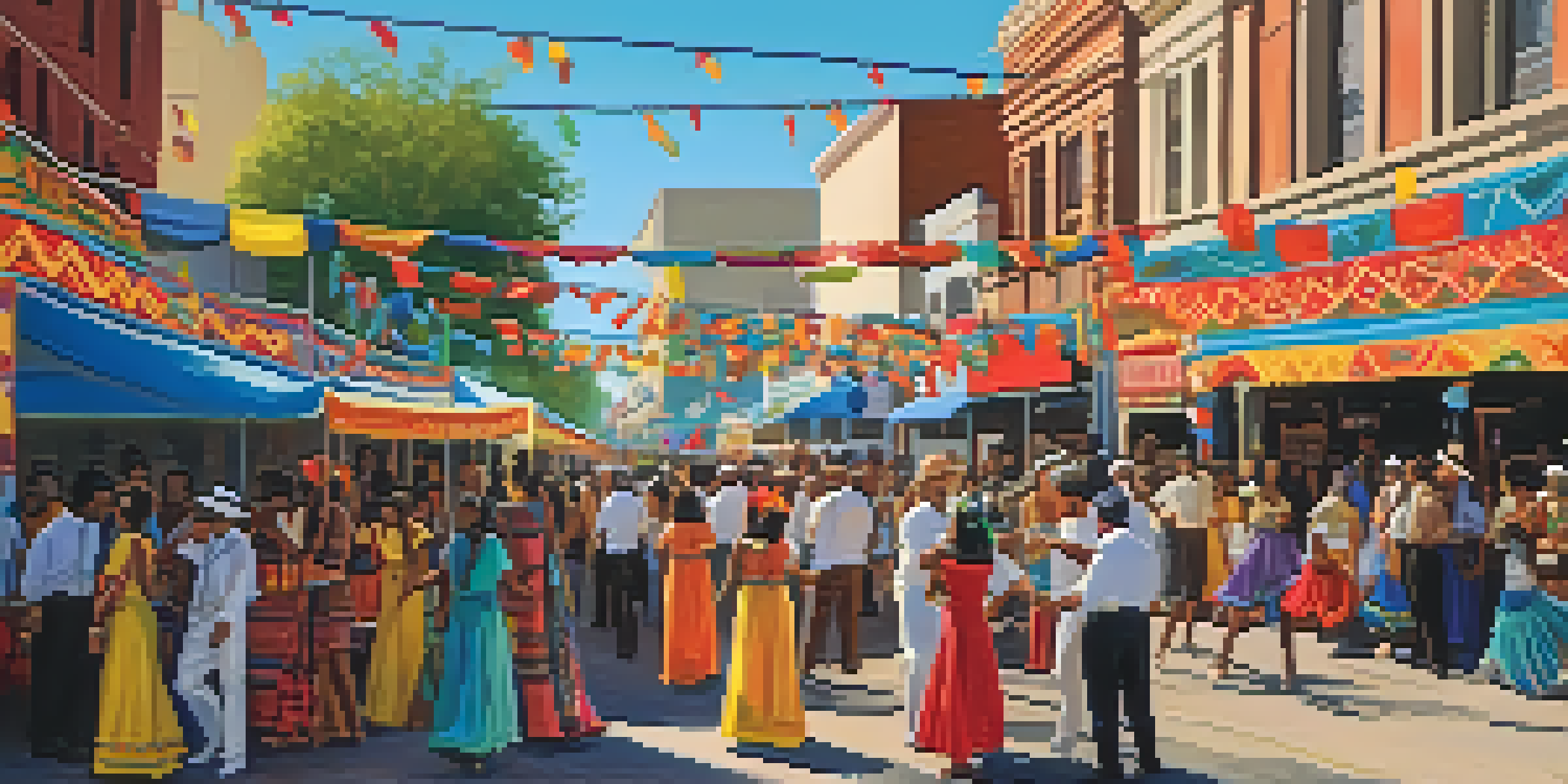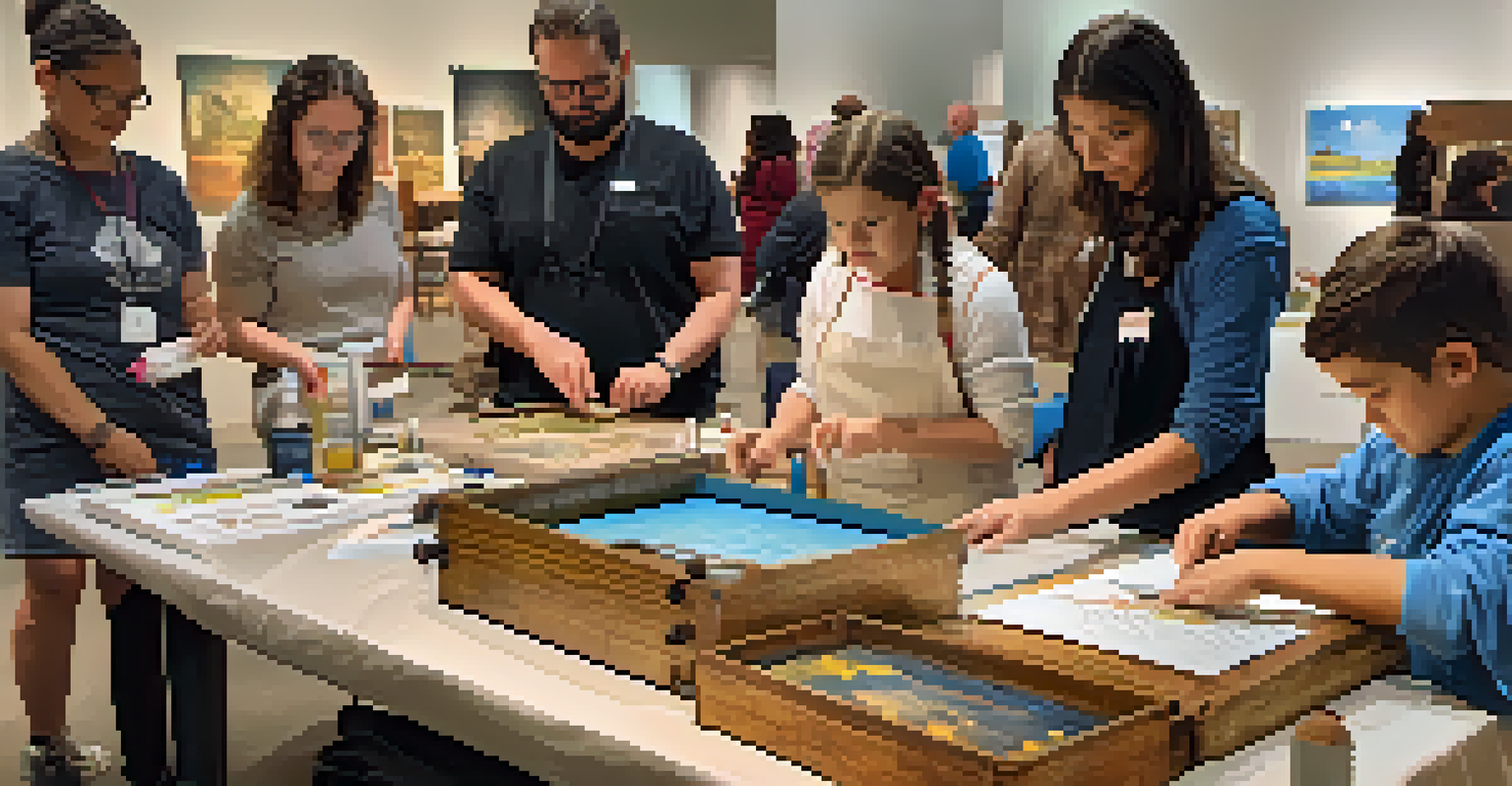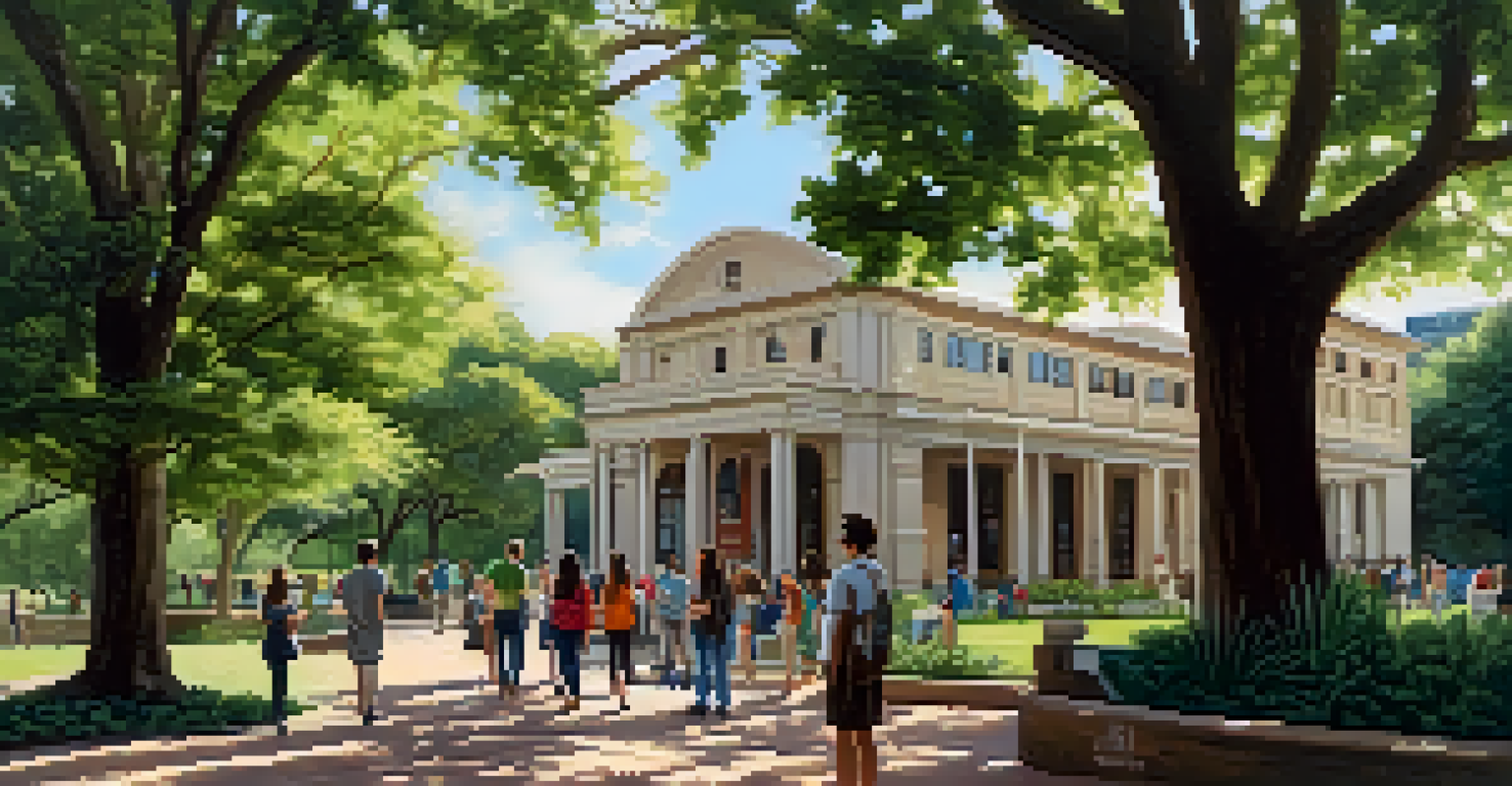Educational Programs on Austin's Cultural Heritage

Understanding Austin's Unique Cultural Landscape
Austin is a vibrant city known for its eclectic culture, music scene, and diverse communities. The rich tapestry of history here is woven from the traditions of various groups, including Native American, Mexican, and African American cultures. This cultural blend creates a unique environment that influences everything from art to food, making it an ideal place for educational programs focused on heritage.
Culture is the widening of the mind and of the spirit.
These programs aim to educate residents and visitors about the city's roots, highlighting significant historical events and figures that have shaped Austin over the years. By exploring local history, participants gain a deeper appreciation for the city's identity and the stories that reside within its neighborhoods. This understanding fosters a sense of belonging and pride in the community.
Moreover, these educational initiatives often involve hands-on experiences, such as workshops, guided tours, and community events. This immersive approach helps bridge the gap between the past and present, making history accessible and engaging for everyone involved.
Key Educational Institutions Promoting Cultural Heritage
Several institutions in Austin play a pivotal role in promoting cultural heritage through educational programs. For instance, the Bullock Texas State History Museum offers interactive exhibits and workshops that dive into Texas history, including the contributions of various cultural groups. Such programs help demystify complex historical narratives and make them relatable to all ages.

Another notable institution is the Mexic-Arte Museum, which focuses on Mexican and Latino art and culture. They provide educational resources like art classes and cultural festivals that celebrate Hispanic heritage. These initiatives not only teach participants about artistic techniques but also immerse them in the cultural significance behind the art, creating a more profound connection.
Austin's Rich Cultural Heritage
Austin's cultural landscape is shaped by a blend of diverse histories, fostering educational programs that celebrate and preserve this heritage.
Additionally, the Austin History Center serves as a treasure trove of resources, offering lectures, archival materials, and community engagement activities. These programs are designed to inspire curiosity and encourage participants to explore Austin's past, ensuring that the stories of its diverse communities are preserved and celebrated.
Community Engagement through Cultural Festivals
Austin hosts a variety of cultural festivals throughout the year that serve as living classrooms for community members. Events like the Austin Festival of Cultures bring together diverse groups to showcase their traditions, food, and music. These gatherings offer a fun and vibrant atmosphere where attendees can learn about different cultures while enjoying performances and culinary delights.
The more that you read, the more things you will know. The more that you learn, the more places you'll go.
Participating in these festivals allows individuals to engage directly with cultural practices and gain firsthand insights into the heritage of various communities. For example, through cooking demonstrations or traditional dance performances, attendees can experience the richness of these cultures in a way that textbooks simply cannot convey. This interactive learning fosters respect and understanding among diverse groups.
Moreover, these festivals often include workshops and presentations aimed at educating the public about cultural histories and contemporary issues faced by communities. This blend of celebration and education ensures that cultural heritage is not only acknowledged but also actively preserved and passed on to future generations.
Leveraging Technology for Cultural Education
In an age where technology is ubiquitous, many educational programs in Austin are harnessing its power to enhance cultural heritage education. Virtual tours and online workshops have become popular, especially in the wake of recent global challenges. These digital platforms enable people from all over the world to engage with Austin's rich history without geographical limitations.
For instance, organizations like the Texas Folklife utilize digital storytelling to share the narratives of local artists and cultural practitioners. By producing online content that highlights different cultural expressions, they create accessible learning opportunities for those who may not be able to visit in person. This approach not only broadens the audience but also fosters a global appreciation for Austin's cultural diversity.
Engaging Communities through Festivals
Cultural festivals in Austin serve as interactive platforms for community members to learn about and appreciate various traditions.
Additionally, social media campaigns and interactive websites serve as tools for outreach and education, making heritage topics relevant and engaging for younger generations. By integrating technology into educational programs, Austin ensures that its cultural heritage remains dynamic and appealing in an ever-evolving digital landscape.
Collaboration with Local Artists and Historians
Local artists and historians are invaluable resources in Austin's cultural heritage educational programs. Their expertise and personal insights help shape the curriculum and provide participants with authentic experiences. Collaborating with these individuals ensures that programs reflect the true essence of the communities they represent, making learning more relatable and impactful.
For example, art workshops led by local artists not only teach traditional techniques but also delve into the significance of those art forms within their cultural contexts. Participants learn the stories behind the art, enriching their understanding and appreciation of the cultural heritage being represented. This direct interaction fosters a deeper connection between the community and its artists.
Moreover, historians often lead discussions and lectures that bring to light lesser-known narratives and historical events. This collaboration helps challenge stereotypes and promotes a more nuanced understanding of the diverse cultures that contribute to Austin's identity. By engaging local talent, educational programs become a platform for storytelling and cultural exchange.
Impact of Educational Programs on Youth
Educational programs focused on cultural heritage play a crucial role in shaping the perspectives of young people in Austin. By introducing students to the diverse histories and cultures that coexist in their city, these programs foster empathy and cultural sensitivity from an early age. This foundational understanding encourages future generations to appreciate diversity and become more inclusive citizens.
For instance, school partnerships with local museums and cultural organizations allow students to participate in hands-on projects and field trips. These experiences not only enhance classroom learning but also instill a sense of responsibility in young people to preserve their cultural heritage. Engaging with history in an interactive way makes it more memorable and impactful.
Innovative Tech in Education
The use of technology in educational programs enhances accessibility and engagement, helping to modernize the teaching of Austin's cultural heritage.
Furthermore, youth-driven initiatives and programs encourage students to explore their own cultural identities while learning about others. This exploration can lead to increased confidence and pride in their heritage, promoting a sense of belonging in a multicultural society. Ultimately, these educational efforts empower young people to become advocates for cultural appreciation and preservation.
Future Directions for Cultural Heritage Education
As Austin continues to grow and evolve, the future of cultural heritage education looks promising. There is a growing recognition of the importance of inclusivity and representation in educational programs. By amplifying underrepresented voices and stories, these initiatives can provide a more comprehensive understanding of the city's diverse heritage.
Innovative approaches, such as incorporating virtual reality experiences and interactive exhibits, are also emerging as effective methods to engage younger audiences. These technologies offer immersive learning environments that can bring history to life in exciting ways. The goal is to create dynamic educational experiences that resonate with participants and inspire them to explore further.

Ultimately, the evolution of cultural heritage education in Austin will depend on community involvement and collaboration. By working together, local organizations, schools, and residents can ensure that the educational programs not only celebrate the past but also pave the way for a more inclusive and culturally aware future.